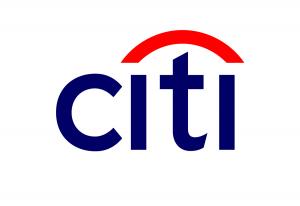Citi Exec: Banks Must Not Get Left Behind in Coming Era of M-Commerce

Citigroup’s Dickson Chu, who is leading Citi’s participation in the Google Wallet, says the bank understands its role in the coming era of mobile commerce.
Chu, Citi’s managing director for global enterprise payments, speaking at the GSM Association’s Mobile Money Summit 2011 in Singapore Wednesday, said banks risk getting left behind in the rapidly changing mobile-commerce market if they are not open to working with other players that can provide innovative services to consumers.
According to the GSMA’s Mobile Banking Briefing, Chu indicated Citi intends to provide the secure payment piece to mobile wallets and other m-commerce offerings. This “bank grade” payment service would be combined with the new mobile advertising-funded models planned by emerging m-commerce players–an obvious reference to Google.
Chu, formerly of PayPal, noted that banks are not the most innovative of organizations. He warned that the evolving m-commerce landscape “must not relegate us to becoming a dumb pipe.”
He said mobile operators have a role to play, too, though he added that the business model “complexities” haven’t yet been sorted out.
 “It is about players within an ecosystem understanding each other’s roles, but there are business model complexities that need to be solved,” Chu said, according to the Mobile Business Briefing. “Providing a great user experience, retail distribution and customer service–this is a role for the MNOs (mobile network operators). “Trust, safety and regulatory compliance–this is something the banks do well. Once these players come together, they will figure out how to co-operate and make money.”
“It is about players within an ecosystem understanding each other’s roles, but there are business model complexities that need to be solved,” Chu said, according to the Mobile Business Briefing. “Providing a great user experience, retail distribution and customer service–this is a role for the MNOs (mobile network operators). “Trust, safety and regulatory compliance–this is something the banks do well. Once these players come together, they will figure out how to co-operate and make money.”
Citi’s view of the emerging m-commerce world as elucidated by Chu will be nothing new, based on the bank's partnership with Google and its Google Wallet, along with other participants, including mobile operator Sprint and MasterCard Worldwide. Google and its partners unveiled the wallet last month. The Web giant plans to launch the NFC m-wallet this summer in New York and San Francisco, before expanding to other cities, such as Los Angeles, Chicago and Washington, D.C.
Citi will issue the PayPass application that would be downloaded to a secure chip in Google’s Nexus S 4G phone sold through Sprint. Google plans to make its revenue not from enabling payment, but from advertisers by delivering their targeted offers to consumers. The company says other phones and financial partners, will follow.
Chu also noted during his keynote at the Mobile Money Summit that smartphones, NFC and related technologies are empowering consumers.
“Who owns the customer? In this new era, it is the customer who owns the customer,” he reportedly said. “Power is shifting to the consumer.”












